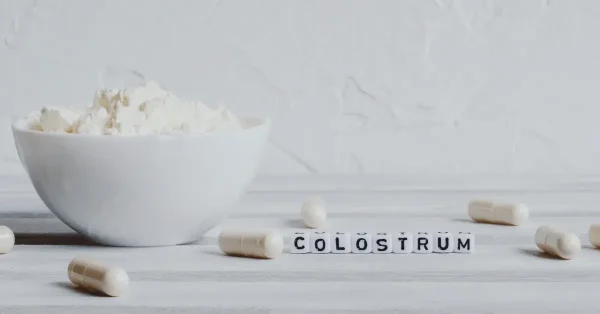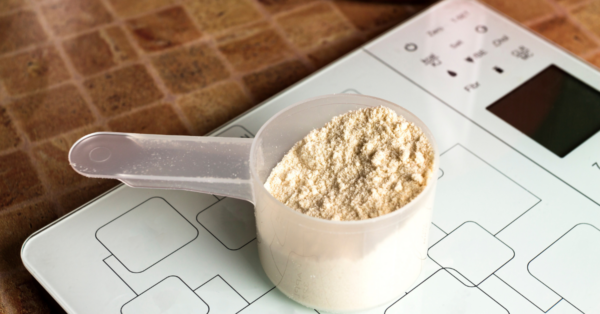“Live microorganisms which when administered in adequate amounts confer a health benefit on the host” is a commonly agreed upon definition for probiotics.
Probiotics have been known to help with numerous health issues, most notably conditions affecting the gastrointestinal system such as IBS, diarrhea, and C. difficile. But, do probiotics play a role in weight loss?
Some research suggests that probiotics can play a role in weight loss while others say there is still much to learn before we know enough about probiotics to know their role in weight loss.
This article will take a look at the various research that surrounds the conversation about probiotics and weight loss and help you decide whether probiotics are worth a try.
The Gut Microbiome and Obesity
Research around this topic has sought to determine what species of bacteria in the gut aid in weight loss and which species or strains contribute to weight gain. Studies introduced different probiotics and studied how they impact weight gain in humans and rodents alike.
A 2006 study looked at bacteria in the gut in mice and humans and categorized two different types of bacteria. The first bacteria category was “obese-microbiota” and this category had higher levels of fat colonization. Obese-microbiota also had a higher capability to store energy. The second category identified in this study were “lean-microbiota” which had less fat colonization than the obese-microbiota.
Another 2006 study found that there were two predominant types of bacteria in the gut, Bacteroidetes, and Firmicutes. Decreased levels of Bacteroidetes were found in obese people when compared to lean people. The findings suggested that obesity could have a link to the microbiome.
A 2009 study found that the human microbiome is similar among family members yet unique to each individual within a particular family. This study suggested that changes in the microbiome related to obesity were associated with less diverse gut bacteria, altered representation of bacterial genes and metabolic pathways. Alterations from an identified ‘core’ microbiome could lead to an altered physiological state (such as obesity).
Even with the evidence above, it’s difficult to use probiotics in a formal manner for weight loss. No clear determinations have been made regarding what dose of probiotics is necessary for weight loss, how long it must be consumed for, or if the weight will stay off once the probiotic is discontinued.
When science answers these questions it will help determine if probiotics could ever be clinically prescribed for weight loss rather than a dietary supplement for weight loss.
How might probiotics contribute to weight loss?
Much remains unknown about how probiotics impact weight loss. A 2015 study researched how Lactobacillus gasseri (LG) impacted intestinal fat absorption. The study found that LG altered fat emulsion droplet size, which in turn decreased the amount of fat that was absorbed in the intestinal tract and led to increased amounts of fat being excreted through feces.
A 2013 study on the probiotics VSL#3 noted multiple effects on the body related to body weight. VSL#3 was trialed with rats and was shown to suppress body weight and insulin resistance and increase the GLP-1 hormone, which reduced food intake. The study suggested that VSL#3 could be helpful in fighting against obesity and diabetes.
What probiotics impact weight loss?
Scientists have identified over 500 strains of bacteria in the human gut, which can be separated and multiplied to form probiotics for consumption for health purposes. A few strains have been the primary focus of research and some have been noted to affect weight loss.
A 2013 study looking at two different types of Lactobacillus probiotics. Researchers used randomized controlled trials with 28 healthy (but overweight) individuals and had them consume yogurt infused with probiotics. All treatment groups had reductions in body fat mass. The study concluded that an altered gut microbiome due to probiotics could change energy metabolism and body composition.
A 2014 study suggested that a probiotic (Lactobacillus rhamnosus) helped women achieve sustainable weight loss. The same trial was performed with men but suggested that Lactobacillus rhamnosus was not helpful in men achieving weight loss.
Numerous studies have shown that the probiotic Lactobacillus Gasseri has promoted weight loss in rats.
Research on Lactobacillus gasseri has shown its ability to decreased body fat, lower body weight, influence metabolic disorders, and decrease fat absorption and help the body excrete fat in feces. Many studies promoted the idea that probiotics needed to be consumed consistently otherwise the desired effects will stop or be reversed. One 2009 study found that fermented milk with LG regulated adipose tissue growth in rats.
Probiotics Can Cause Weight Gain
When using probiotics to promote weight loss, you should avoid these strains because studies have shown they can cause weight gain. Lactobacillus reuteri was associated with obesity and the study that concluded this suggested that microbiome composition can impact or even alter body weight and obesity. Furthermore, the probiotic strain, Lactobacillus acidophilus has also been associated with weight gain in some studies.
The Takeaway
Probiotics for the treatment of health conditions, including obesity, remains a minimally beneficial option.
There is not strong evidence to suggest that probiotics should be a first or even second-line treatment option. Rather they continue to be an alternative option for consumers to pursue if mainstream treatments prove ineffective. Due to the complexities surrounding probiotics and the gut microbiome, research is difficult to conduct.
Conversely, probiotics are a low-risk treatment option for consumers to pursue for weight loss. Taking a probiotic in conjunction with a proper diet and exercise could yield favorable results given the evidence of the above studies.
As always, be sure to consult your primary care provider before taking any probiotics.









One Response
This piece was incredibly enlightening! The level of detail and clarity in the information provided was truly captivating. The extensive research and deep expertise evident in this article are truly impressive, greatly enhancing its overall quality. The insights offered at both the beginning and end were particularly striking, sparking numerous new ideas and questions for further exploration.The way complex topics were broken down into easily understandable segments was highly engaging. The logical flow of information kept me thoroughly engaged from start to finish, making it easy to immerse myself in the subject matter. Should there be any additional resources or further reading on this topic, I would love to explore them. The knowledge shared here has significantly broadened my understanding and ignited my curiosity for more. I felt compelled to express my appreciation immediately after reading due to the exceptional quality of this article. Your dedication to crafting such outstanding content is highly appreciated, and I eagerly await future updates. Please continue with your excellent work—I will definitely be returning for more insights. Thank you for your unwavering commitment to sharing your expertise and for greatly enriching our understanding of this subject.